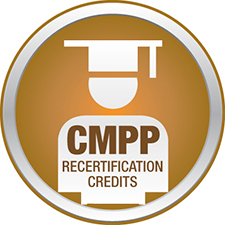Workshop Registration - Workshops offered April 19, 21 and 23
Workshops are offered the week after the 17th Annual Meeting of ISMPP. They are held on Mon. Apr. 19; Wed., Apr. 21 and Fri., Apr. 23. Please see the offerings below. Note: registration for workshops is separate from the 17th Annual Meeting of ISMPP registration.
Each workshop is:
- Capped to 30 attendees with the exception of Introductory Publication Planning, which is capped at 50 attendees.
- Each workshop will include up to 60 minutes of didactic recorded content to be pre-watched, and 90 mins. of live interaction (live interaction will not be recorded).
- Each workshop is $250. *Non-members: Please note that there is an additional $195 administrative fee to register, which entitles you to a complimentary year of membership to ISMPP if you opt-in.
Registration for workshops is separate from the 17th Annual Meeting of ISMPP registration.
Registration is closed!
Monday, April 19 Workshops
Introductory Publication Planning: The Best of the Basics for New Publication Planning Professionals
12 noon-1:30 PM EDT
Experience an interactive and instructional introduction to the process of publication planning, with
presentations targeted toward newer publication professionals. This workshop includes information on the history of the profession and on good publication practices, with a focus on GPP3. Explore the components of a publication plan, including authorship, publication steering committees, journal selection, and more.
New! *Using Enhanced Digital Content and Design to Increase HCP Engagement: Focus on Scientific Posters
3:00-4:30 PM EDT
This workshop will focus specifically on scientific posters. As in-person scientific congresses are re-inventing themselves into virtual or hybrid experiences, researchers and publishers are adapting how they foster scientific exchange by using enhanced digital media fit for the digital age. Some rapidly growing areas include the use of enhanced digital content as well as producing publications that are more visual, more engaging, and easier to digest. Already, many journals are including enhanced content developed by the journal or the authors, and these techniques are becoming increasingly common when building digital scientific posters.
Enhanced poster content such as graphical or video abstracts, audio, augmented reality, podcasts, journal-specific websites and microsites, and plain language summaries allow industry experts to communication better and help HCPs to access and engage with the latest research. Underpinning all these design decisions is an understanding of the behavioral science that explains how users engage with content, especially time-poor users like HCPs. One key consideration is paying attention to shifts in how HCPs prefer to receive information, although this can vary greatly by audience. Such considerations allow for crafting and adapting the communication platform to the user, creating enough points of access that people can choose to receive and digest the information in a way that works for them.
Learning objectives:
- Understand how enhanced poster content can increase reader engagement and facilitate data dissemination
- Describe a variety of types of and uses for enhanced poster content
- Understand the diversity of the HCP audience and the need for tailored poster content
 *Approved for ISMPP CMPP recertification credit.
*Approved for ISMPP CMPP recertification credit.
Wednesday, April 21 Workshops
New! How to Succeed in Cross-Collaboration: The SCARF Model for Medical Affairs
9:00-10:30 AM EDT
Medical Affairs is becoming the driver of many activities in pharma, bringing together functions that previously worked quite separately (e.g. Clin Dev, Publications, HEOR, Market Access, Patient Advocacy etc), to create integrated medical activities – for example:
- Scientific communication platforms
- Evidence generation plans
Most of the problems that Medical Affairs leaders encounter in bringing together diverse functions arise because people feel threatened in some way.
- Teams are usually multi-function and multi-country – people from different functions and countries have different background/culture/ways of working/motivations/incentives and so these can easily be misunderstood and misaligned
- These issues have been exacerbated by the COVID-19 pandemic and the shift to remote working and virtual workshop activities
- Remote working can reinforce feelings of isolation and make team-building harder
- Virtual activities make it harder to pick up visual/behavioural signs of threat and discomfort
SCARF (status, certainty, autonomy, relatedness, fairness) is an established framework for ensuring motivational interactions with people, that all Medical Affairs leaders should be familiar with and apply in their everyday roles – it’s simple, backed by science, and effective.
Learning objectives:
- Develop leadership and motivational skills that will help Medical Affairs colleagues build cross-functional relationships and engagement, in order to successfully deliver integrated medical activities
- Understand that effective collaboration requires modifying interpersonal interactions to account for different functions/nationalities having different backgrounds/cultures/ways of working/motivations
- Understand that a major cause of disharmony/disengagement/demotivation is an individual feeling threatened in some way, and the implications of triggering a ‘threat’ response
- Be knowledgeable about the SCARF model (NeuroLeadership Institute), its key components – Status, Certainty, Autonomy, Relatedness, Fairness – and their importance in triggering a ‘reward’ response
- Understand how the SCARF model can be applied by Medical Affairs colleagues in their everyday roles and interactions with colleagues
*Advanced Publication Planning: A Research-based Approach to Bringing Your Publication Plan to the Next Level
12 noon-1:30 PM EDT
In this predominantly interactive workshop, faculty along with participants sharing techniques and strategies to develop and execute a comprehensive, credible, and ethical publication plan. Participants will learn new techniques for refining and documenting their plans and examine the challenges increasingly facing publication professionals. This workshop is intended for professionals with experience.
 *Approved for ISMPP CMPP recertification credit.
*Approved for ISMPP CMPP recertification credit.
*Digital Advances and Publication Planning: Current Practices and Future Directions
3:00-4:30 PM EDT
Explore the role of digital advances and social media in enhancing the educational value of scientific
publications. Participants will review the latest innovations from prominent medical publishers and assess obstacles and practicalities that have limited the adoption of such new media opportunities to date. Attendees will be encouraged to share their own work experiences with integrating social media into their publication processes.
 *Approved for ISMPP CMPP recertification credit.
*Approved for ISMPP CMPP recertification credit.
Friday, April 23 Workshops
New! *Congress 2.0: Re-imagining Congresses in a Post-COVID World
12 Noon-1:30 PM EDT
2020 has shown us change, whether we like it or not. The fundamentals of what delegates look to get out of any conference/congress have not changed. Yet, as an industry it could be argued we’re still clinging to the comfort of the well-trodden congress path from the analogue era. Convention has bound us all to recreate the same, mimicking annual congress experience and structure; rather clumsily slapping it into a digitally remote setting. As a result, the value proposition has changed for all concerned. This workshop will share proprietary quantitative and qualitative research, and will shine a light on the divergent perspectives of audiences associated with congress and the new challenges we face as an industry (HCPs, pharma, societies, PAGs/patients, academia).
The following areas will be covered:
- Pros/cons from each audience perspective
- Is virtual is here to stay and if so, what does that look like?
- What is a hybrid delivery – will it work?
- How important will the technology and platform be? How best to crack open the barriers for future success?
- The change in the F2F and digital journey of a delegate’s congress – are our traditional KPIs and moments that matter interchangeable between settings?
- Is this an opportunity for real change and factor in the many questions around effectiveness of the ‘old’ format? Are there too many congresses? Is open access to scientific information the better way forward?
This thought-provoking workshop will conclude with hypotheses on new prospective business models for congresses to be successful and relevant in this disrupted era.
 *Approved for ISMPP CMPP recertification credit.
*Approved for ISMPP CMPP recertification credit.
*Visual Communication: Creating Visuals That Transmit Faster and Hit Harder
3:00-4:30 PM EDT
Science doesn’t have to be boring, and communication professionals can enhance their audience’s understanding through effective use of visual communication. But visual processing alone does not necessarily translate into improved learning. This workshop will examine the principles of visual communication through best practices examples within publications and other medical communication deliverables, including figures and illustrations from documents, presentations, and/or educational materials. Practical guidance will be offered on how to apply these principles to visualizing scientific data using exercises in appropriate use of infographics, with before-and-after examples of the progression from objectives to final solutions as well as how to approach reviewing and or directing their development.
 *Approved for ISMPP CMPP recertification credit.
*Approved for ISMPP CMPP recertification credit.



 *Approved for ISMPP CMPP recertification credit.
*Approved for ISMPP CMPP recertification credit.
